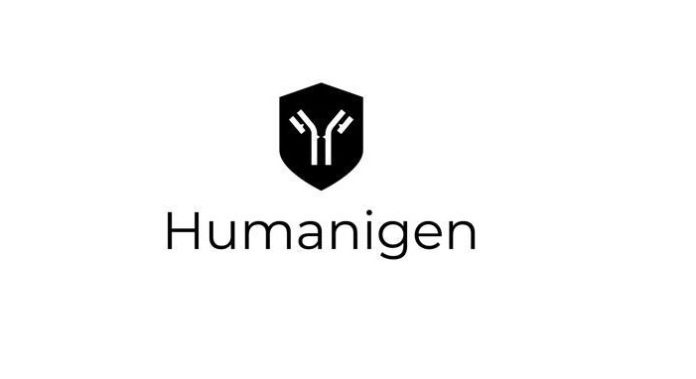Humanigen, Inc., a clinical-stage biopharmaceutical company focused on preventing and treating an immune hyper-response called ‘cytokine storm’ with its lead drug candidate, lenzilumab, today announced positive topline results from its Phase 3 clinical trial evaluating the efficacy and safety of lenzilumab in patients hospitalized with COVID-19. Trial results showed that patients who received lenzilumab and other treatments, including steroids and/or remdesivir, had a 54% greater relative likelihood of survival without the need for IMV compared with patients receiving placebo and other treatments. These results are statistically significant.
“The results from our Phase 3 clinical trial with lenzilumab treatment were associated with better outcomes in hospitalized hypoxic COVID-19 patients who had not yet progressed to the point of requiring IMV,” said Cameron Durrant, MD, MBA, Chief Executive Officer, Humanigen. “Additionally, the trial incorporated a diverse population with various comorbidities, most commonly a body mass index above 30, which is representative of a real-world, high-risk population. Our next step is to submit an application for Emergency Use Authorization (EUA) to the Food and Drug Administration (FDA) as soon as possible. We are also sharing these results with US governmental agencies and other authorities worldwide.”
“Mayo Clinic is pleased to have been part of the investigation of lenzilumab from the earliest days of the development program in COVID-19 and are excited by these data,” said Andrew Badley, MD, Professor of Infectious Diseases, and Professor and Chair of the Department of Molecular Medicine at Mayo Clinic. “If lenzilumab is authorized for emergency use by FDA, and based on our clinical trial experience to date, it may then be considered a part of our treatment armamentarium for newly hospitalized patients with COVID-19.”
Study results demonstrate that lenzilumab significantly improved patient outcomes. The study achieved its primary endpoint of ventilator-free survival measured through day 28 following treatment (HR: 1.54; 95%CI: 1.03-2.33, p=0.0365). Ventilator-free survival is a validated and reliable measure used in studies that evaluate respiratory distress.1 The Kaplan-Meier estimate for IMV and/or death was 15.6% (95%CI: 11.5-21.0) in the lenzilumab arm versus 22.1% (95%CI: 17.4-27.9) in the placebo arm, representing a 54% improvement in the relative likelihood of survival without the need for IMV. Although this study was not powered to demonstrate a difference in mortality, a favorable trend in mortality was observed: 9.6% (95%CI: 6.4-14.2) in the lenzilumab arm compared with 13.9% (95%CI: 10.1-19.0) in the placebo arm (HR: 1.39; 95%CI: 0.82-2.39; p=0.2287). Approximately 88% of patients received dexamethasone (or other steroids), 62% received remdesivir, and 57% received both, balanced across both arms of the study. Serious adverse events (SAEs) were balanced in both study arms and the SAE profile was similar to that previously documented in prior lenzilumab studies. In this study, lenzilumab appeared to be safe and well-tolerated; no new SAEs were identified, and none were attributed to lenzilumab.
“The data strongly suggest that lenzilumab improved outcomes for hospitalized patients with COVID-19 pneumonia,” said Zelalem Temesgen, MD, Professor of Medicine at Mayo Clinic and Principal Investigator of the Phase 3 trial. “The dosing regimen used in this study was specifically designed for hospitalized patients with COVID-19 pneumonia as a potential foundational therapy. Lenzilumab could make the difference between going on a ventilator, which reduces one’s chance of survival, and leaving the hospital alive.”
“It is impressive to see lenzilumab achieve this milestone. At Emory University, a key center in the National Institutes of Health (NIH) ACTIV-5 study, which is currently enrolling, we are hopeful that lenzilumab will emerge as a valuable therapy for newly hospitalized patients. We believe there may be future opportunities to study lenzilumab in even larger trials, and further explore lenzilumab’s impact on mortality rates,” added Vincent Marconi, MD, Professor of Medicine at Emory University School of Medicine.
About Humanigen, Inc.
Humanigen, Inc. is developing its portfolio of clinical and pre-clinical therapies for the treatment of cancers and infectious diseases via its novel, cutting-edge GM-CSF neutralization and gene-knockout platforms. Humanigen’s immediate focus is to prevent or minimize cytokine release syndrome that precedes severe lung dysfunction in hospitalized and hypoxic patients with COVID-19 pneumonia. Humanigen is also working to create next-generation combinatory gene-edited CAR-T therapies using strategies to improve efficacy while employing GM-CSF gene knockout technologies to control toxicity. In addition, Humanigen is developing its own portfolio of proprietary first-in-class EphA3-CAR-T for various solid cancers and EMR1-CAR-T for various eosinophilic disorders. Humanigen is also exploring the effectiveness of its GM-CSF neutralization technolo
gies (either through the use of lenzilumab as a neutralizing antibody or through GM-CSF gene knockout) in combination with other CAR-T, bispecific or natural killer (NK) T-cell-engaging immunotherapy treatments to break the efficacy/toxicity linkage, including to prevent and/or treat Graft versus Host Disease (GvHD) in patients undergoing allogeneic hematopoietic stem cell transplantation (HSCT). Additionally, Humanigen and Kite, a Gilead Company, are evaluating lenzilumab in combination with Yescarta® (axicabtagene ciloleucel) in patients with relapsed or refractory large B-cell lymphoma in a clinical collaboration.























